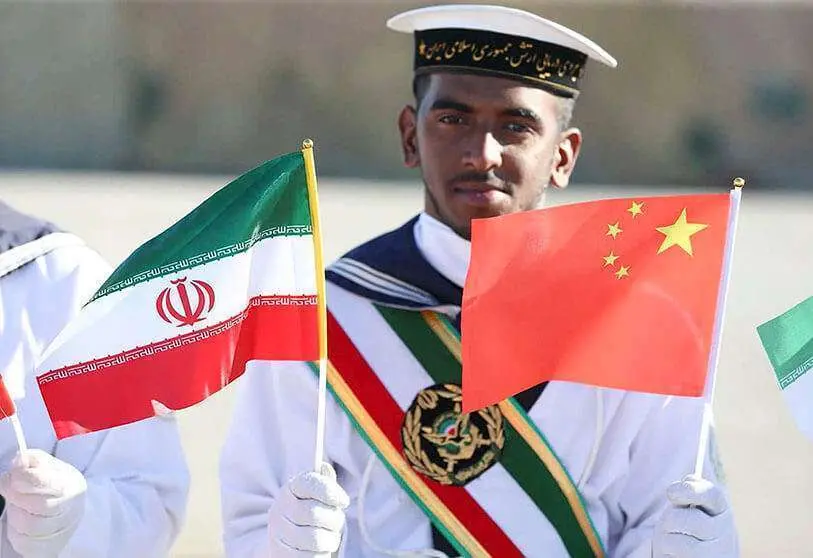China and Iran: a union that threatens the United States

In recent years, China has become a key player on the Middle East board. Beijing's sights in the region are set above all on energy companies. In 2015, China became the largest importer of oil, with almost half of its supply coming from the Middle East region.
But not only this. The leak of a document has highlighted the new alliance between China and Iran. The two countries would have signed a 25-year strategic partnership in trade, politics, culture and security.
Already in July, Iranian Foreign Minister Mohammad Javad Zarif had announced that Tehran was close to signing a long-term strategic partnership agreement with Beijing, but the details were not known.

Both China and Iran have global and regional ambitions and both maintain high tensions with the United States, so they share a common enemy.
According to The New York Times, the agreement will see China invest a total of $400 billion in Iran's banking, transportation and development, and in return, Beijing will receive a regular, friendly supply of Iranian oil.
This agreement is part of the Belt and Road (BRI) initiative, which Chinese President Xi Jinping aims to extend his economic and strategic influence across Asia and Europe.
This megaproject was launched by Xi Jinping in 2013 and named the 'New Silk Road'. It will cross several countries in the area, becoming an outstanding strategic route, both by sea and by land, to link Asia, Europe, Africa and the Middle East.

The Iranian supreme leader, Ali Khomeini, has given the go-ahead to this cooperation agreement, giving the way to President Hassan Rohani and the Minister of Foreign Affairs to negotiate the agreement.
This bilateral union between Tehran and Beijing is of particular concern to Washington, especially with regard to the military aspect of the agreement. The greater influence of the Asian giant in East Asia as in Africa has challenged the interests of the United States.
For Iran, this agreement could mean the refloating of its economy, since after international sanctions and liquidity problems, having an oil buyer's guarantee in addition to a large investor has served to calm the stock markets.
The policy of "maximum pressure" and the sanctions imposed on Iran by the Trump Administration has succeeded in suffocating the Iranian regime. Record inflation and unemployment rates have made an exit necessary for the Iranian economy. Tehran's shift to Beijing has been one of the consequences and China is making the most of the tensions between the United States and the Islamic Republic.

The Iranian media have already begun their pro-China propaganda campaign and it is common to read and hear the narrative that it is in the best interest of the Iranian nation to side with China. But despite the good news for the Iranian economy, China is the big winner of this deal.
After this agreement between China and Iran was made public, the Indian newspaper The Hindu reported that Tehran had decided to exclude India, a historic ally of the Islamic Republic, from a mega railway project that was to connect the Iranian port city of Chabahar with Zahedan, a city near its border with Afghanistan. Iran denied this information from the Indian newspaper and argued that it "had not signed any agreement with India regarding the Zahedan-Chabahar railway".
For the past 20 years, the Islamic Republic has supported Indian projects to establish new trade routes, but New Delhi's decision to stop buying Iranian oil and thus accommodate Washington's wishes.

This new partnership will undoubtedly affect India's interests in its main enemy, Pakistan. The introduction of China in the Iranian projects will make Beijing seize the opportunity to connect the port or Chabahar, southeast of Iran, with Gwadar in Pakistan.
These Sino-Iranian ties will redraw the political chessboard in the region and further undermine U.S. influence in the area. The decline and inability of the U.S. to shape the new reality in the Middle East has left a vacuum that is being filled by other powers such as Russia, Iran, Turkey, and now China. Unlike the United States, the Asian giant has adopted an apolitical position in its new alliances, prioritising its economic and commercial benefits more than the presence or not of democracy, or the fulfilment or not of human rights.








